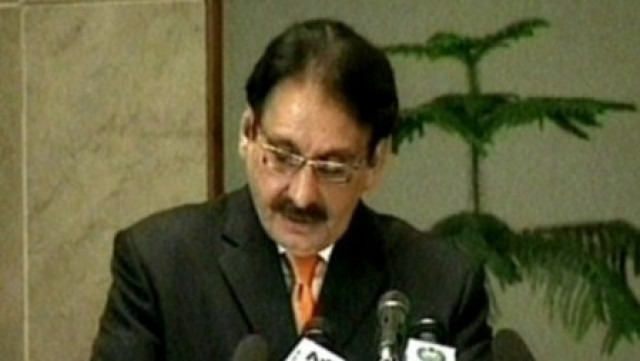We are aware of criticism: Justice Chaudhry
The existence of the parliamentary committee for the appointment of top judges is contrary to the constitution.

“Yes, if the conduct of the judges cannot be discussed in the parliament then how can it be in the parliamentary committee?” Justice Tariq Pervez observed during the hearing of multiple challenges to the 18th amendment by a 17-member larger bench of the Supreme Court, headed by Chief Justice Iftikhar Muhammad Chaudhry.
He made the observation as Ahmad Raza Kasuri began presenting arguments before the bench.
“The role of the people does not seem to be in the parliamentary committee regarding judges’ appointment, therefore the committee cannot be called the people’s committee,” Justice Jawad S Khawaja observed, adding that “the parliamentary committee for judges’ appointment is not even answerable to the parliament”.
“If we have to be sincere with the Constitution and the people, then it is required to stop such things,” Justice Khawaja remarked.
“We are aware of the criticism on this court’s judgments. The day before yesterday a word ‘Wardat’ was being used for a court’s decision during a talk show on a private TV channel. We have reservations on it but we are showing courtesy to the apex court and don’t want to destroy the court decorum,” Chief Justice Chaudhry observed.
“If the parliamentary committee rejects the recommendations of the chief justice, it will become very tough for the judges to save their honour,” Justice Ramday observed.
“Yes we declared some divergent laws void, but on the basis of basic structure we have not voided any law,” the CJ observed.
Later Salman Raja Advocate arrived at the rostrum on behalf of the civil society and pleaded before the bench that he is facing criticism from different communities for filing this application.
“We have to review whether or not the constitutional amendment is against the independence of the judiciary. The courts have accepted independence of the judiciary as a key point for appointment of judges,” Chief Justice Chaudhry observed.
“How many parliamentary committees are there in the world for the appointment of judges and what is their role? In other words, in how many countries parliamentary committees appoint judges? The British Supreme Court has clearly stated that the role of the parliament will not be accepted in the judges’ appointment,” Justice Ramday remarked while addressing Salman Raja.
Later the CJ adjourned the hearing for an indefinite period because of the Eid holidays.
Published in The Express Tribune, September 8th, 2010.



















COMMENTS
Comments are moderated and generally will be posted if they are on-topic and not abusive.
For more information, please see our Comments FAQ